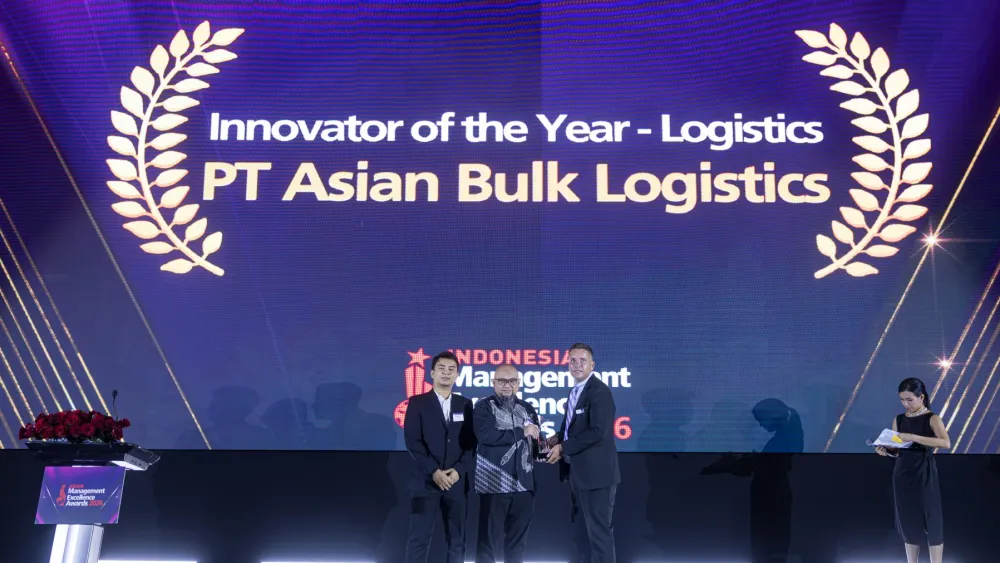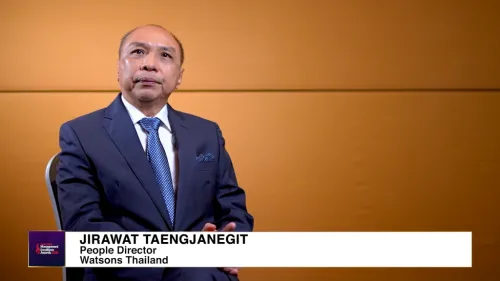
Indifference to global events for businesses ‘outright dangerous,’ says BDO partner
Shivendra Jha said businesses must integrate technology’s impact with their supply chain to minimise cost structures.
Shivendra Jha is a partner and the head of advisory and outsourcing services at the United Arab Emirates (UAE) office of BDO, an international network of public accounting, tax, and advisory firms. He is responsible for corporate finance, tax, forensic, risk, and technology advisory services and is supported by a group of seasoned professionals leading their respective service lines.
Shivendra has over 15 years of experience in business strategy consulting, business valuation, financial due diligence, business planning, financial feasibility studies, forensic investigations, fraud risk assessment, compensation claim assessment, change management, business process improvement and reengineering, business restructuring, and management training, and has assisted a wide range of clients in creating leading-edge results.
His industry experience ranges from oil & gas, energy, retail, hospitality, healthcare, education, real estate, EPC, fintech, food & beverage, and trading, as well as various segments in the manufacturing sector.
With his profound knowledge, blended with creative and unconventional wisdom and business approach, he deals with clients with a great deal of empathy for their specific goals and objectives.
In viewing the Middle East business landscape post-COVID-19, Shivendra noted that indifference to global developments for business is downright dangerous, if no longer affordable. He emphasized that events outside of the region already impact the local setting and that disruptions are caused by businesses that have been slow and indifferent to act on these occurrences.
As organisations enter a new period in the business landscape, coupled with the rapid shift in technology, Shivendra mentioned that they must integrate the transformational impact of technology to minimise the cost structure that enables the business to establish competitive pricing of their products and services and to maintain profit margins.
Speaking with Asian Business Review, Shivendra has expounded on how digital transformation can help businesses grow, how they should navigate the post-COVID business landscape, as well as what makes a business successful today.
How do you think the Middle East business landscape has evolved since the onset of the pandemic? Are there any trends that we need to watch out for?
Firstly, to understand the Middle East business landscape both in the pre- and post-pandemic era, we must know that traditionally, the Middle East business landscape both in terms of value and job creation, was primarily driven by public sectors. Until 2018 and early 2019, two-thirds of Saudi workers were employed by the public sector, and in Jordan, 55% of the workforce was employed by the public sector. These were two of the highest ratios in the world. With times- forthcoming challenges of unemployment, inflation, geopolitical uncertainty, and market expectation of efficiency in doing business, pushed the leadership of Middle East countries to come up with progressive reforms that break the status quo and dependency on the public sector and oil and gas sector for nation building.
A quick view of the national strategy and vision of two important countries, the Kingdom of Saudi Arabia and the United Arab Emirates (UAE) of Middle East, promulgated prior to the pandemic, will give a sense of how the conventional landscape of Middle East business is changing and leading towards the fourth industrial revolution in the Middle East.
The Kingdom of Saudi Arabia's (KSA) Vision 2030 rolled out ambitious projects such as Neom- a US$500b futuristic mega city on the coast of the Northern Red Sea, powered by 100% renewable energy; Al Qiddiya, the largest cultural, recreational, and sporting destination in KSA, Red Sea Tourism Project; Saudi Green Initiative; and the Middle East Green Initiative with the ambition of reducing carbon emissions by 10% of the global level.
UAE’s National Innovation Strategy 2014 and National Strategy for Advanced Innovation 2018 focus on goals and outcomes in seven areas: exploration, future skills, quality of health, living and life, green power, transport and harnessing of technology to serve humankind, and; UAE’s Fourth Industrial Revolution (FIR) Strategy that comprises six pillars - The Human of the Future, The Security of the Future, The Experience of the Future, The Productivity of the Future, The Frontiers of the Future and The Foundations of the Future.
These visions and strategies, combined with progressive reforms, point to the fact that the Middle East took the first and most important steps before the pandemic to break the status quo of the traditional Middle East business landscape.
Post-COVID-19 pandemic, it’s vividly clear that indifference to global developments for business is no longer affordable; in fact, it is downright dangerous. Events far away can have a dramatic impact on local businesses and people’s lives, and we have seen how indifferent and slow-moving businesses failed to respond quickly enough, which led to widespread disruption.
This pandemic has disrupted the supply chains most and enforced the exigency of revisiting as-is status and implementing path-breaking changes in all aspects of business, impacting people, policy, process, technology, and customers’ preferences and measuring them against constantly improving agility and resilience benchmarks relevant to the respective business.
Whilst businesses were battling hard in the testing times during the pandemic, the commitment and preparedness of the Middle East countries’ leadership facilitated a conducive environment for business by making timely reforms in various regulations and taking solid measures in furthering the transformational strategy aligned with their long-term vision. This has helped the business to recover primarily due to macro factors driven by policymakers and government stimulus.
When the short-term gap in growth and investment created in the two years pandemic period will be filled, and consumer demand and employment status will be stabilised, creating new opportunities for sustainable growth will be challenging for businesses. The risk of gradually moving back to a pre-pandemic state with pre-pandemic players and losing focus on building a more resilient system and supply chain will be fatal in the long run.
Global supply chain restoration is not completed yet, and this can take more time, which will result in a continued shortage of products followed by an overall increase in prices. The cost of products, labour, capital, and supply chain are going to increase, which will adversely impact the profitability and sustainability of the business. Businesses must integrate the transformational impact of technology to minimise the cost structure that enables them to establish competitive pricing of their products and services and maintain profit margins.
With digital transformation initiatives becoming inevitable, how do you think these can propel business growth? What are the challenges that they need to anticipate and how can they address these?
Digital transformation for businesses is not a choice anymore. Whether it’s a small or large business, in a constantly evolving business environment, seamless adoption of new technology that enhances the customer experience, optimises costs and creates more opportunities for employees to learn and grow will result in the sustainable and profitable growth of the business.
A collective clamour for digital transformation may lead to the non-productive application of technology. Digital transformation projects must be well-thought and evaluated from the agility and resiliency perspectives and must offer an enhanced customer experience at minimal cost with the flexibility to adapt to any change with minimum effort and cost.
The objective of any planned digital transformation must be measured against the problem it solves, the experience that it brings for the customers, suppliers, and employees, and the ROI that it offers.
With more employees and companies placing greater consideration on diversity and inclusion, how do you think businesses can ensure an inclusive and empowering environment for their stakeholders?
All business strategies must be people-centric and that must be embedded in the organisation’s culture.
With the changing expectations of employees, businesses must focus on the health and well-being of employees and provide an environment that believes in their dreams and helps them to achieve them.
In the hybrid workspace, businesses must provide a range of collaboration spaces, user-friendly technology, high-quality in-office services, and organise regular off-work employee engagement programmes to collaborate.
The growth path of employees must be communicated clearly, and performance measurement criteria must be simple and transparent. Decision-making on people matters must be prompt and timely.
What are your key performance indicators for measuring businesses’ growth and success? How can businesses improve on these?
Well, all top-line growth is not created equal. Growth of any kind increases revenue, but that does not always mean success. Successful growth not only increases revenue but correspondingly improves profits and is sustainable over time. Shareholder value is created by growth that is profitable, organic, differentiated, and sustainable.
The gross margin of a business is often not given the dues it deserves. Businesses that increase gross margin and, at the same time, grow revenues at a rate better than the overall market will be successful.
Effective implementation of new technologies, upscaling of employees’ skills, and higher quality products/services created at a better cost structure would strengthen the competitive advantage of the business. An agile workforce and a resilient supply chain system will enable the business to swiftly adapt to the constantly changing business environment. This will lead to profitable growth that is also capital-efficient.
Eventually, businesses will be able to achieve sustainable and profitable growth only if everyone in the organisation believes it to be possible. Thus, it’s important for business leaders to create the right mindset for value-based growth, and that must be practiced consistently across the business and demonstrated in the organisation’s culture in every space of business.
As a judge in the Middle East International Business Awards, what innovations or key factors are you looking for in this year’s entries?
I am looking for innovation in the business that drives the company’s growth agenda and considers its people being an inherent part of their growth agenda. A solution in business that is innovative but also offers a pragmatic solution to the given problem in a true sense and enhances customer experience with an improved return on investment would be my straight pick.



















 Advertise
Advertise








